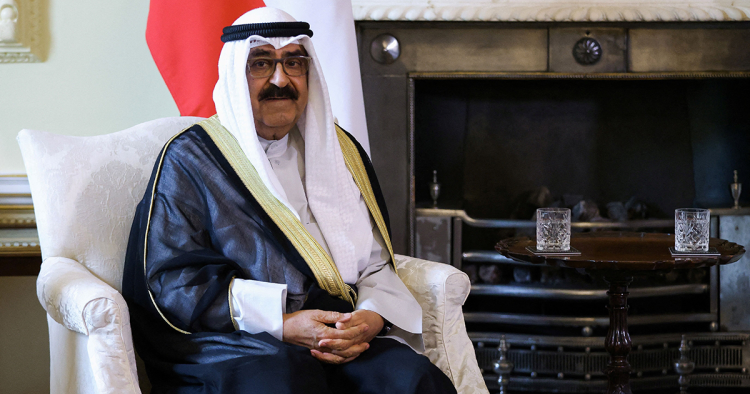Sheikh Mishal al-Ahmad al-Jaber Al Sabah, Kuwait’s 83-year-old crown prince and half-brother of the late emir, was named to replace Sheikh Nawaf immediately following news of his death on Dec. 16. Sheikh Mishal’s accession to the throne will be formalized once he takes an oath of office before the Kuwaiti parliament. As crown prince, Sheikh Mishal has been guiding Kuwait’s day-to-day affairs since the frail Sheikh Nawaf’s health began to fail in 2021.
Sheikh Mishal has been one of Kuwait’s principal decision makers since the elevation of his older half-brother, Sheikh Sabah, in 2006. Over the course of his career, Mishal has served primarily in defense and security roles, including the development of its intelligence and security service into the Kuwait State Security service and later as the deputy chief of the Kuwaiti National Guard.
Given Sheikh Mishal’s long experience and senior policy roles, he will likely continue to guide Kuwait in familiar directions. In foreign affairs, these will include an emphasis on preserving Gulf unity, especially relations with Saudi Arabia, promoting regional tension reduction, and maintaining strong ties to key international partners, principally the U.S. There is also some expectation that Sheikh Mishal will seek to strengthen Kuwait’s relations with China. Unlike several of its Gulf Cooperation Council partners, however, Kuwait has remained steadfast in its support for Palestinian rights and has thus far rejected suggestions of normalization with Israel.
Domestically, Sheikh Mishal will likely continue the efforts launched by Sheikh Nawaf to overcome decades of tense relations between the monarchy and Kuwait’s powerful parliament. In 2022, Sheikh Mishal, acting on behalf of the emir, dissolved parliament and called for new elections. But his commitment to not interfere in the selection of a new parliamentary speaker, as well as his pledge to adhere to the constitution and not seek to amend or suspend it, were widely praised by political observers, who termed his actions “historic.”
A second major challenge confronting Sheikh Mishal lies within the ruling Al Sabah family itself. Unlike its Gulf neighbors, Kuwait has yet to establish a line of succession that extends beyond the current generation of octogenarians. Mishal’s own designation as crown prince in 2020 at the age of 80 effectively kicked the can down the road on a generational shift. That indecision has resulted in an increasingly fractious internal competition as the younger Al Sabah family members maneuver for advantage. As emir, Mishal has up to one year to designate a successor. How he makes that decision, and whether he opts to hand the baton to a younger Al Sabah, may be the most consequential decision for Kuwait that he will make over the course of his tenure.
Amb. (ret.) Gerald Feierstein is a distinguished senior fellow on U.S. diplomacy at the Middle East Institute (MEI) and director of its Arabian Peninsula Affairs Program.
Photo by HOLLIE ADAMS/POOL/AFP via Getty Images
The Middle East Institute (MEI) is an independent, non-partisan, non-for-profit, educational organization. It does not engage in advocacy and its scholars’ opinions are their own. MEI welcomes financial donations, but retains sole editorial control over its work and its publications reflect only the authors’ views. For a listing of MEI donors, please click here.












